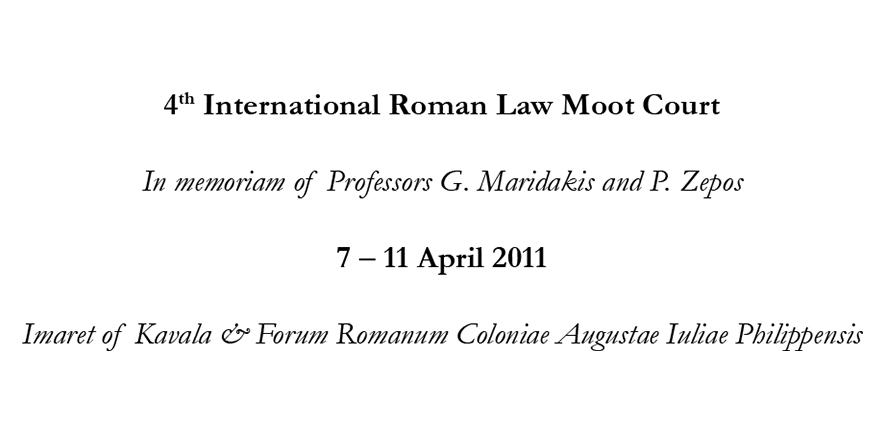Fourth IRLM (2011)


A panel of five judges presided over one the closest Grand Finals to date in the Fourth International Roman Law Moot Court Competition, awarding the Oxford and Cambridge teams equal ranking points and leaving the tie to be resolved by resort to individual speaker scores, which differed by a mere 2 marks out of 200. The International Moot was organised by the Institute Mohamed Ali for the Research of Eastern Tradition and sponsored by Clifford Chance LLP, Potamitis & Vekris, Zepos & Yannopoulos, Karatza & Partners and Koimtzidis-Paparallis-Kogkalidis.
Set in Constantinople in AD 546, the libellus required teams to argue an unjust enrichment-style claim for recovery of jewellery handed over and travel expenses incurred in the course of failed pre-contractual negotiations, as well as a negligence-style claim arising out of the death of a slave inadvertently poisoned when he consumed the deadly amanita phalloides mushroom in an ostensibly luxurious meal prepared during the negotiations.
| Libellus | Lucullus c. Eudocian et Eutaxian |
| Palma Victoriae | University of Cambridge |
| Palma Secunda | University of Oxford |
| Palma Tertia | Université de Liège |
| Palma Optimi Oratoris sive Clifford Chance LLP Best Oralist Award | Mateusz Krauze (University of Oxford) |
| Mentiones Honorifices | Michael Harper (University of Oxford); Caroline Alewaerts (Université de Liège) |
